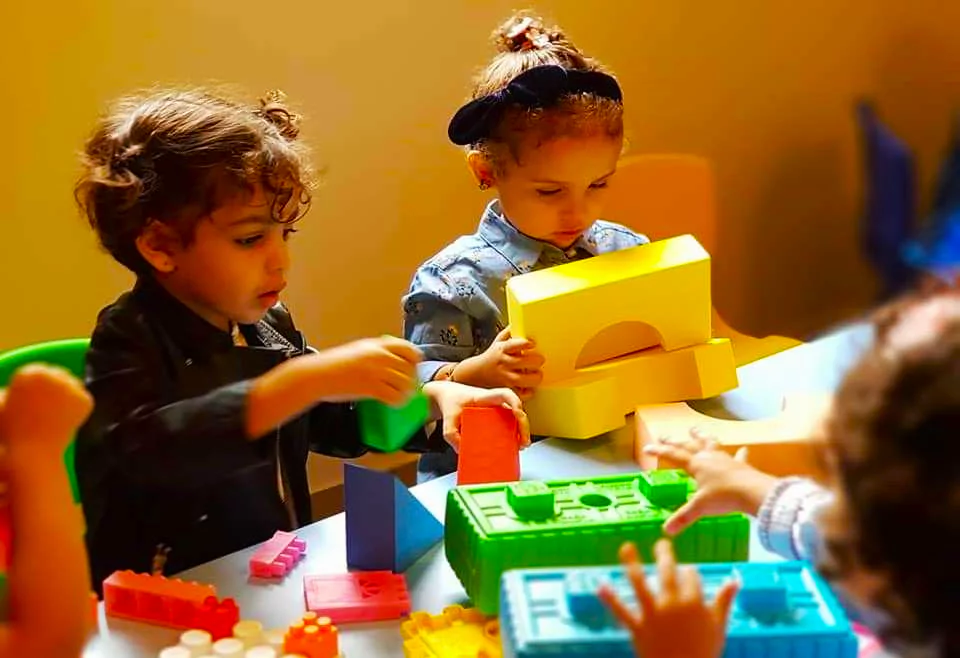Context
The National Framework of Early Childhood Stimulation 2024 has introduced an activity-based curriculum for parents, anganwadis (childcare centers) and ASHA workers in India.
- This curriculum is titled “Navchetana,”.
- It emphasizes that a child’s learning journey begins from birth and extends up to the age of three.

About Navchetana
- This curriculum follows National Education Policy 2020.
- It provides detailed information on the importance of brain development during the crucial first three years, when 75% of the brain develops.
- It provides month-by-month activities to be conducted by parents, anganwadi staff, and ASHA workers and ensures holistic development of children through purposeful activities.
- The curriculum involves a range of activities, including:
- Talking: Encouraging communication with children.
- Playing: Engaging children in play-based learning.
- Moving: Promoting physical activity.
- Listening to Music and Sounds: Enhancing auditory perception.
- Sensory Stimulation: Focusing on sight and touch.
- Objective: It aims to stimulate growth in language, literacy, numeracy, and sensory skills of new child.
- Training for Staff: Over 14 lakh, anganwadi staff will be given training on implementing the curriculum.
- Framework Development:
- An internal committee, comprising representatives from various ministries and organizations, finalized the framework.
- Organizations are the Ministry of Women and Child Development, Ministry of Health and Family Welfare,Institute of Home Economics, Delhi University, etc.
- Instructions for caregivers and frontline workers
- Parents and caregivers play a vital role in implementing the curriculum. Thus, Specific instructions guide caregivers in:
- Capturing the Child’s Attention
- Communicating with the Child
- Introducing Age-Appropriate Play Activities
- Following the Child’s Lead
- Providing Positive Reinforcement
Enroll now for UPSC Online Course
Developmental Activities for Children
-
Infancy (0-12 months):
- It promotes the use of everyday items like cups, bottles, and fabric remnants.
- Activities focus on basic skills like reaching for objects, making sounds by imitating, and manipulating objects such as putting objects in and out of a jar and removing knots in a handkerchief in the first year.
-
Toddlerhood (12-24 months):
- As children grow, they would be encouraged to feed themselves and explore their surroundings.
- They can engage in the kitchen, play with dough, and see themselves in a mirror.
- At around 18 months, children would be encouraged to start scribbling with crayons, fostering early creativity.
-
Preschool Years (24-36 months):
- By 24 months, activities will focus on teaching children to sort and match items like shoes.
- At age three, children are introduced to riding a cycle, practicing saying their names, and identifying colors, laying the groundwork for further cognitive and motor skill development.
Benefits of the Activity-Based Curriculum
The activity-based curriculum outlined in the National Framework of Early Childhood Stimulation 2024 offers several benefits:
- Promotes Early Brain Development: The curriculum emphasizes activities during the crucial first three years, when 75% of the brain develops.
- Supports Multiple Developmental Areas: Activities target various skills like language, literacy, numeracy, and social interaction.
- Uses Readily Available Materials: Activities mentioned in the framework uses simple household objects which make it accessible and affordable.
- Identifies Developmental Delays: By following the age-appropriate activities, potential delays can be recognized and addressed.
Also Read: Lancet Study On Child Marriage In India
![]() 20 Apr 2024
20 Apr 2024
